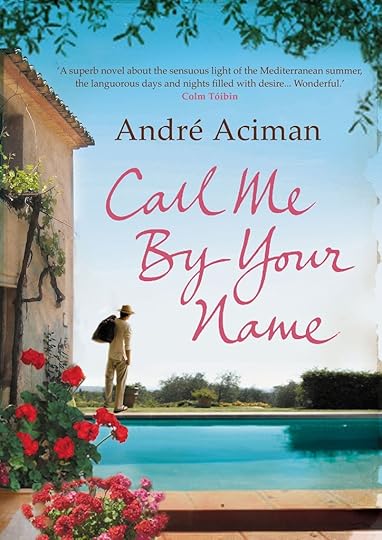‘Call Me By Your Name’ and the Ascent of Humanity.

“You’re too old not to accept people for who they are.” – ‘Call Me By Your Name’ (2017).
The revelations you have when you are nowhere near a pen and paper. I should become one of those people with a phone permanently grafted to my hand, that would solve the current problem of trying to recall everything I wanted to write.
I want to take a minute to set the current scene. I’m sat on my bed typing this, I have a desk but ninety-eight percent of the time it’s covered in papers and books. At this moment there’s only one clear corner and that’s only because I just removed a glass from there. I could tidy the desk of course, but sitting on the bed just seemed simpler. I wanted to explain the desk for a reason, it implies something, it reflects something you need to know before we dive any further into this.
‘Call Me By Your Name’ (2017), I finally got around to watching the film and there is this one line that has been travelling with me ever since:
“You’re too old not to accept people for who they are.”
This morning, I finally cleared away enough mental clutter to figure out just exactly what it is about this line that won’t leave me alone. It implies something, it implies a lot actually. It’s the simplicity of one line, hidden among a thousand others, holding an entire universe, I love those lines. So, let’s break it down.
Our main character, Elio is told by his father: “You’re too old not to accept people for who they are.” (In the 2007 book by Andre Aciman, the sentence reads: “My father laughed it off, saying I was too old not to accept people as they were.”) Taken in this context it suggests a fallibility we can have when we’re young that we shouldn’t carry with us into adulthood. Despite the fact that I think we’re less judgy when we’re young and intolerance is actually a learnt behaviour, it gives us an excuse, a pass for being young and stupid, for not knowing any better, a pass that we can’t use when we get to a certain age.
Now let’s pull the line outwards and see what it implies then: “You’re too old not to accept people for who they are.” It suggests an ascension, a raise in our conscious evolution. We’ve reached a point, a stage in humanity where we have no more excuses. We’re not a young race anymore, we’ve achieved enough, learnt enough, failed enough to know better. As a species we’re old enough now, evolved enough now, that acceptance of who people are should be a given.
Imagine a world where this is explained to everyone. As soon as something discriminatory, or genderist, or racist is expressed by a supposed adult who should know better, that someone responses with: “You’re too old not to accept people for who they are.” Imagine that line and everything it carries being understood and accepted. Imagine how peaceful this world would become, imagine how welcoming and loving, imagine what we could become.
There’s also another way to look at this line, as a reflection of ourselves. “You’re too old not to accept people for who they are.” Taking this line back to the context of the film and using Elio as the representation of our own childish ego self, the line becomes not just about accepting others but accepting ourselves. Sometimes the things we mock in others, the things we don’t like, the things that we judge, are the things we don’t want to see or accept in ourselves.
I feel like for the most part we can live in a sort of denial state where we can only truly see ourselves through the reflection of others and we don’t always like what we see. So, we belittle it, we refuse it, we can become afraid of it. But we’re too old not to accept people for who they are, which means we’re too old not to accept ourselves as well. Even if we don’t know who we are yet, there should be an acceptance of that too. We’re old enough now to know better, we’ve got no more excuses.



